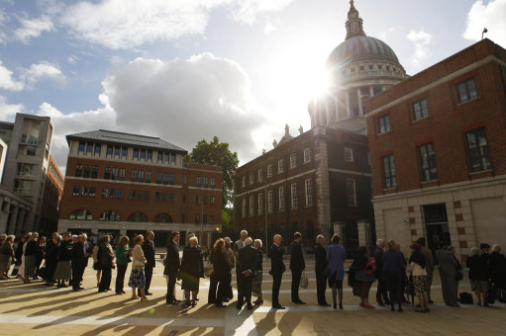
The Attorney General has dismissed claims from atheists that Britain is not a Christian country, while cautioning that the rise of religious fundamentalism is damaging the position of Christianity in the UK.
Speaking to The Telegraph, Dominic Grieve QC was one of several senior government figures who defended David Cameron's recent comments about the UK's status as a "Christian country".
However he raised concerns that those who speak out too aggressively make it harder for many others to speak out about their faith effectively, criticising believers of any faith who promote "deep intolerance".
"There has been a rise of an assertiveness of religious groups across the spectrum. That is why those with softer religious views find it disturbing and say they don't want anything to do with it," he said.
He suggested religious fundamentalism harms efforts towards evangelism and drives people away from the Christian faith.
Mr Grieve said: "I do think that the rise of religious fundamentalism is a major deterrent to people. It is a big turn off away from religion generally, and it's very damaging in that context.
"It encourages people to say I'm not interested, [it encourages] an unwillingness to express commitment."
Fundamentalism has been damaging in a country that is, in his view, quite open to faith and spiritual belief.
"The evidence in this country is overwhelming that most people in this country by a very substantial margin have religious belief in the supernatural or a deity."
In terms of religious belief, the data supports Mr Grieve's conclusions. The 2011 census reports that 75 per cent of the population adhere to a religious faith of some description. Looking specifically at Christianity, 59 per cent of the population choose this as their religious affiliation.
However a YouGov poll also from 2011 raised questions about how much of faith gets put into practice. Only 9 per cent of those asked in that survey said they had attended a religious service in the last seven days.
Mr Grieve dismissed a recent letter from 50 notable secularists attacking David Cameron's assertion that Britain is a Christian country.
, saying that the "basic premise" of their attack was "wrong".
The letter, which was published in The Telegraph, was signed by author Terry Pratchett, TV presenter Nick Ross, historian Dan Snow and comedian Tim Minchin among others, and argued that Mr Cameron's comments were fostering "alienation and division in our society".
However, Mr Grieve disagreed, saying that the basic premise of their argument was "wrong", while noting that atheism "doesn't appear to have made much progress in this country at all".
"It is arguably our Christian heritage, with its innate tolerance and inclusivity, that has ensured the freedom of all voices – religious or non-religious – to be heard and to be valued," he said.
"As I go around and look at the way we make laws, and indeed many of the underlying ethics of society are Christian based and the result of 1,500 years of Christian input into our national life
"It is not going to disappear overnight. They [atheists] are deluding themselves."









